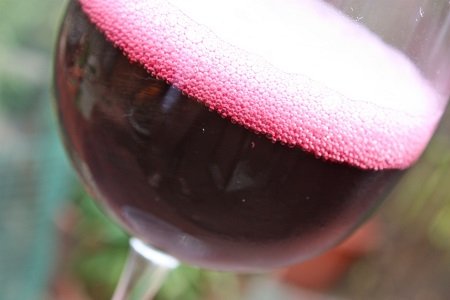(CNN) — The antioxidant resveratrol does not improve longevity when consumed at levels naturally occurring in foods like grapes, red wine and dark chocolate, according to a new study published Monday in the journal JAMA Internal Medicine.
“We looked at the relationship between resveratrol levels and a lot of health outcomes that are thought to be related to resveratrol, such as cancer and heart disease and lifespan. And we found no relationship,” says Dr. Richard Semba, study author and professor at Johns Hopkins University School of Medicine.
The potential health benefits of consuming moderate amounts of red wine have been much discussed ever since researchers identified the “French paradox” – an observation that the French have lower levels of heart disease despite consuming relatively high amounts of saturated fat.
Some epidemiologists proposed that France’s relatively high rates of red wine consumption may help explain the supposed paradox, and further studies have shown that light to moderate alcohol consumption does in fact correlate with healthier hearts. The new study does not contradict these conclusions.
More recently, researchers at Harvard Medical School and the National Institutes of Health identified a specific chemical in red wine – resveratrol – that seems to significantly delay the effects of aging in mice, when given in very high doses.
Today, Americans spend some $30 million per year on resveratrol supplements, even though there have been no long-term studies in humans to measure resveratrol’s effect on longevity.
So researchers from Johns Hopkins University and the University of Barcelona tracked 783 men and women aged 65 or older, analyzing who survived and who died over a nine-year period in relation to their resveratrol levels.
The results show no benefits – in terms of longevity, reduced inflammation, heart disease or cancer – to having higher levels of resveratrol versus lower or moderate levels.
However, study participants’ resveratrol came only from their diets – consuming foods like red wine, chocolate, and berries – which provides almost negligible amounts of resveratrol compared to the levels found in supplements and studied in mice.
In fact, a person would have to drink hundreds of glasses of red wine a day to match the amounts used in previous resveratrol studies.
“This study is very important because it demonstrates, in a long-term study with a huge cohort, that (normal) dietary resveratrol levels are not correlated with all-cause mortality,” says Juan Carlos Espin, a research professor at the Spanish National Research Council.
“However, to claim that resveratrol does not have influence on the all-cause of mortality would require the comparison of a cohort with ‘normal’ resveratrol levels (very low and unpredictable) versus another cohort with a standardized resveratrol supplementation.”
The-CNN-Wire
™ & © 2014 Cable News Network, Inc., a Time Warner Company. All rights reserved.
